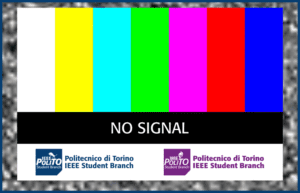3 June 2021 – 5.30 PM CET
ONLINE EVENT
YouTube Live Broadcast
Here’s the 5th PitchD – the PhD’s pitch. Our PhD IEEE Student Members explain to students, colleagues and professors their research.
Optimizing perceptual quality prediction models for multimedia communication systems
Mr. Lohic Fotio Tiotsop
Dept. of Control and Computer Engineering (DAUIN), Politecnico di Torino
To allow effective storage and transmission of images/videos, compression algorithms that limit perceptual quality degradation are needed. This requires effective Quality Prediction Algorithms (QPAs). QPAs aims at predicting, for a given image/video, the Mean of the Opinion Scores (MOS) that a group of human observers would give if they were asked to watch it and express their opinion on how visible the artifacts are, using a numerical scale. There is still a large room for improvement of state-of-the-art QPAs. This talk will introduce you to how machine learning models and advanced statistical methods can be used to improve the quality prediction of these algorithms while considering the individual user’s expectation which is typically disregarded when predicting the MOS. In particular, it will be shown how an Artificial Neural Network can be trained to mimic a human subject in terms of quality perception, yielding what is called an AI Observers (AIO).
Synchromodal logistics: enabling technologies and related projects
Mr. Riccardo Giusti
Dept. of Control and Computer Engineering (DAUIN), Politecnico di Torino
Synchromodality is a recent paradigm for long-haul transportation to decrease costs, emissions, and delivery times in modern supply chains. These goals are achieved through stronger stakeholders’ cooperation based on integrating their businesses to build one flexible and reliable system. This system allows synchronizing resource utilization and goods flow to react to disruptions with real-time practices like re-routing, rescheduling, and modal shift. However, implementing synchromodality requires improving critical success factors by using innovative technology solutions. This talk aims to overview synchromodality, focusing on peculiarities, critical success factors, and enabling technologies. In particular, we discuss three different projects. First, we present SYNCHRO-NET, an integration platform offering technology tools to various stakeholders. Second, we focus on optimizing a tactical problem concerning handling contracts with terminals and managing shipment flows. Lastly, we introduce a simulation/optimization approach to deal with real-time re-planning.
Prevention of Thermal Runaway Through Accurate SOH Estimation with Parallel Layer Extreme Learning Machine (PL-ELM)
Mr. Ethelbert Ezemobi
Dept. of Mechanical and Aerospace Engineering (DIMEAS), Politecnico di Torino
EU aims to be climate-neutral by 2050 – an economy with net-zero green gas emission. The geometric progression in the sales of electric vehicles from 2010 till 2019 reinforces the hope of reaching this goal. One major foreseen challenge that may limit the adoption of electric and hybrid vehicle is the dreadful thermal runaway. A good understanding of the major cause of this phenomenon can help to ensure that the battery operates within the risk-free zone. The chemical industry is not mature enough to produce cells with uniform ageing characteristics. State of health (SOH) is a useful index for measuring battery ageing. It is essential to adopt algorithms that can accurately estimate the varying state of health (SOH) of all the cells in the battery pack. An approach for enhancing the generalization of SOH estimation using a parallel layer extreme learning machine (PL-ELM) algorithm is presented here.


